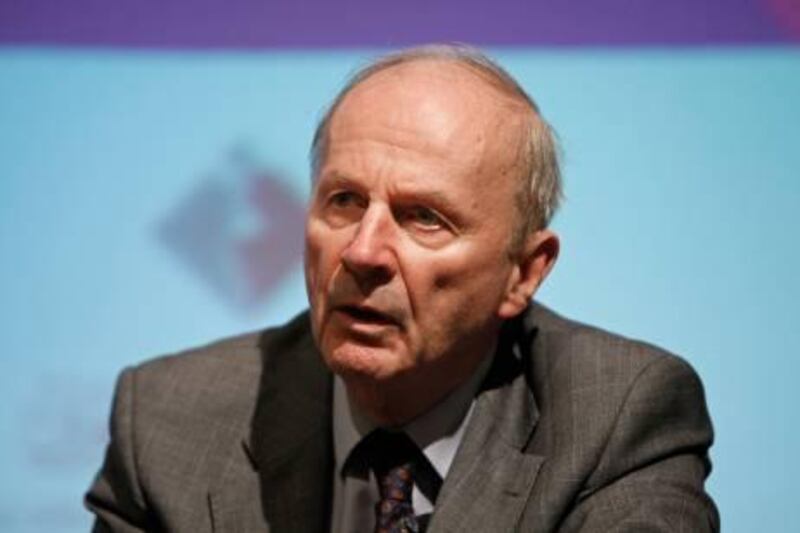DUBAI // The leaders emerging in Libya, Egypt and Tunisia must follow the example of the Prophet Mohammed if they are to succeed in creating a bright future for their people, an expert on leadership theory said yesterday.
"What we are seeing in North Africa is a longing for good leadership," said John Adair, the United Nations' chair of leadership studies. "One of my big messages for the region is that you will not win the hearts and minds of Muslims unless you exemplify the qualities of leadership which are found in the example of the Prophet Mohammed."
In January, Zine el Abidine Ben Ali stepped down following street protests in Tunisia and a new government was formed. Last month, Hosni Mubarak resigned after almost 30 years as the leader of Egypt and a presidential election is to be held there later this year. Conflict between the Libyan dictator, Muammar Qaddafi, and those opposed to him is intensifying.
"People have an expectation of what good leaders - and leaders for good - are," Mr Adair added. "They won't accept people who are protected by armies, who occupy these top roles of leadership and are arrogant and lack the humility of the Prophet.
"The problem is that too many leaders in the world today haven't prepared themselves for leadership. Nobody is talking about Col Qaddafi as a leader.
"You will never find, if you study the life of Mohammed, any hint of corruption or bribery. It's not there, and indeed the whole tradition is hostile to the idea that you profit by leadership."
Mr Adair, 76, believes Mohammed spent many years acquiring the understanding that enabled him to be a good leader when he became the Prophet.
The British author was in Dubai for the launch of an Arabic edition of his book The Leadership of Muhammad and took part in a question-and-answer session.
"Half of the world's population of 6.7 billion people is aged 25 or under, and the percentage is much higher in Arab countries," he added.
"Therefore my message to Arab countries is, invest in young people, invest in the elders of tomorrow, but don't do it by buying in the latest American fashion, flying in the gurus. Find in your own traditions the treasures of leadership and develop them - that is what this book is about."
Mr Adair described the late Sheikh Zayed as a wise and much-loved leader. He praised the efforts of Sheikh Mohammed bin Rashid, Vice-President and Prime Minister of the UAE and Ruler of Dubai, to improve leadership standards.
The book - named non-fiction title of 2010 by the Dubai-based bookshop chain Magrudy's - uses incidents from the Prophet's life to demonstrate leadership principles.
Mr Adair pioneered a style of management training known as action-centred leadership, and more than a million people around the world have taken courses based on his theories.
His interest in the Arab world dates to 1954, when he served as a British officer in a Bedouin regiment of the Arab Legion - the predecessor of today's Jordanian Armed Forces. He was given a Bedouin name, Sweillim, and describes the experience as a pivotal period in his life.
"Mr Adair knows a great deal about the Arabs - maybe more than we know," said Rami Killawi, who translated the book into Arabic.
The Leadership of Muhammad is one of more than 40 books that Mr Adair has written. The English edition is published by Kogan Page and the Arabic version was put out by Turath Publications, a division of UAE-based Jerboa Books. Both retail for Dh85.






